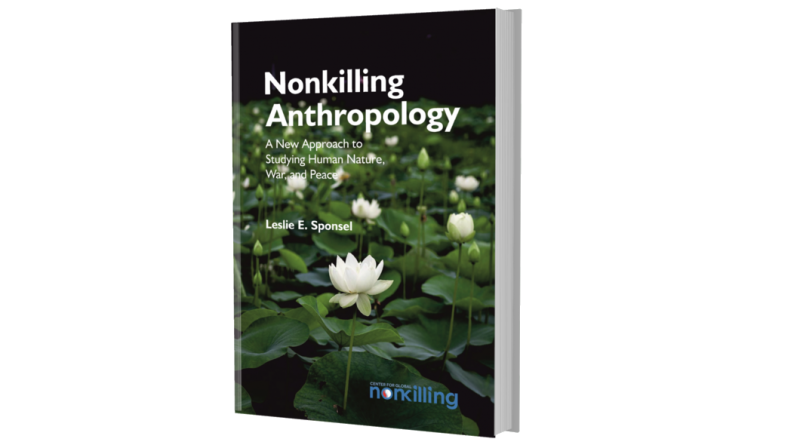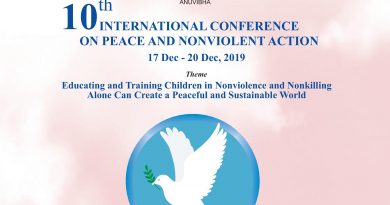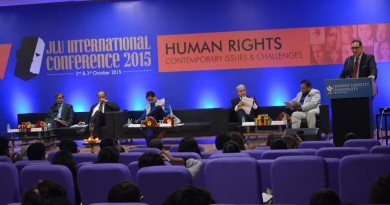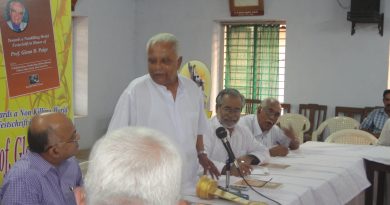“Nonkilling Anthropology” book launched
The Center for Global Nonkilling has launched today its latest academic publication, “Nonkilling Anthropology: A New Approach to Studying Human Nature, War, and Peace”, by Professor Leslie E. Sponsel. Inspired by the work of CGNK’s founder Glenn D. Paige, this book explores the mutual relevance of anthropology, nonkilling, and peace studies, and their synergy. All three are maturing in their development with increasing potential for benefiting society and humanity. Nonkilling as one focus in anthropological research and teaching can help generate inspiring new knowledge, understanding, and insights with significant practical as well as theoretical relevance.
As the book’s preface states, “Nonkilling, as one focus in anthropological research and teaching, can generate inspiring new knowledge, understanding, and insights with very practical as well as significant theoretical relevance.” (…) “Hopefully this book will encourage others to also engage in helping to continue advancing the exciting and promising arena of science and scholarship in nonkilling anthropology. Any constructive criticisms and other comments are most welcome.”
A PDF version can be downloaded for free from CGNK’s website and paperback copies can be ordered at $15 from Amazon.com. Royalties from printed book sales have been kindly waived by the author for CGNK.
About the Author
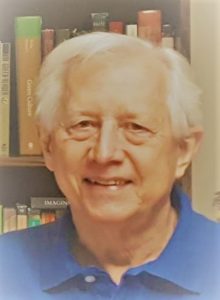 Leslie E. Sponsel earned the B.A. in geology from Indiana University (1965), and the M.A. (1973) and Ph.D. (1981) in biological anthropology from Cornell University. His doctoral dissertation is The Hunter and the Hunted in the Amazon: An Integrated Biological and Cultural Approach to the Behavioral Ecology of Human Predation.
Leslie E. Sponsel earned the B.A. in geology from Indiana University (1965), and the M.A. (1973) and Ph.D. (1981) in biological anthropology from Cornell University. His doctoral dissertation is The Hunter and the Hunted in the Amazon: An Integrated Biological and Cultural Approach to the Behavioral Ecology of Human Predation.
Sponsel has taught at seven universities in four countries, including Canada and as a Fulbright Fellow in Venezuela and later a second Fulbright in Thailand. Since 1981, he serves on the anthropology faculty at the University of Hawai`i in Honolulu where he became a Professor Emeritus in 2010. He is the founder and former Director of the Ecological Anthropology Program. Twice he was given the Excellence in Teaching Award. Among the many courses he teaches are Primate Behavior and Ecology, Ecological Anthropology, Environmental Anthropology, War and Peace, Ethics in Anthropology, Anthropology of Buddhism, Spiritual Ecology, and Sacred Places.
He was a founding member of the Spark M. Matsunaga Institute for Peace at the University of Hawai`i. He contributed to the development of Glenn D. Paige’s independent Center for Global Nonkilling. He was invited by Paige to facilitate a weekly faculty research seminar on nonviolence, and it ran for three semesters with a cumulative total of more than a hundred guest speakers.
Sponsel was a founding member and the first chair of the Committee for Human Rights of the American Anthropological Association and its predecessor the Commission for Human Rights (1992-1996).
His interests focus on peace, ecology, and religion, especially their intersections. Sponsel pursued research in ecological anthropology in the Venezuelan Amazon with Yanomami and other indigenous cultures during several field trips from 1974-1981, and since 1984 in Thailand on Buddhist ecology and environmentalism including on sacred caves.
Sponsel’s publications include numerous book chapters, journal articles, and encyclopedia entries as well as editing these books: Indigenous Peoples and the Future of the Amazon: An Ecological Anthropology of an Endangered World, The Anthropology of Peace and Nonviolence, Tropical Deforestation: The Human Dimension, Endangered Peoples of Southeast and East Asia: Struggles to Survive and Thrive, Religious Environmental Activism in Asia: Case Studies in Spiritual Ecology. He is author of Spiritual Ecology: A Quiet Revolution which won the Green Book Festival Award for Science in 2014. His forthcoming book is Yanomami in the Amazon: Toward a More Ethical Anthropology.
For more information please see http://www.spiritualecology.info

